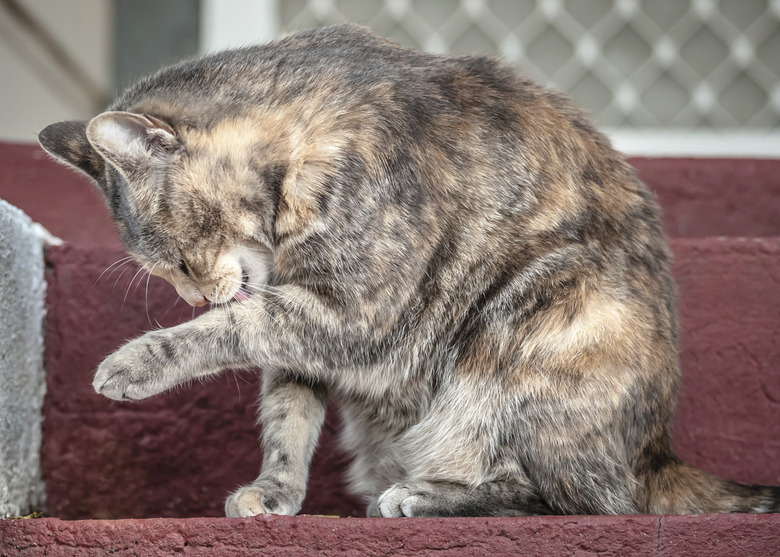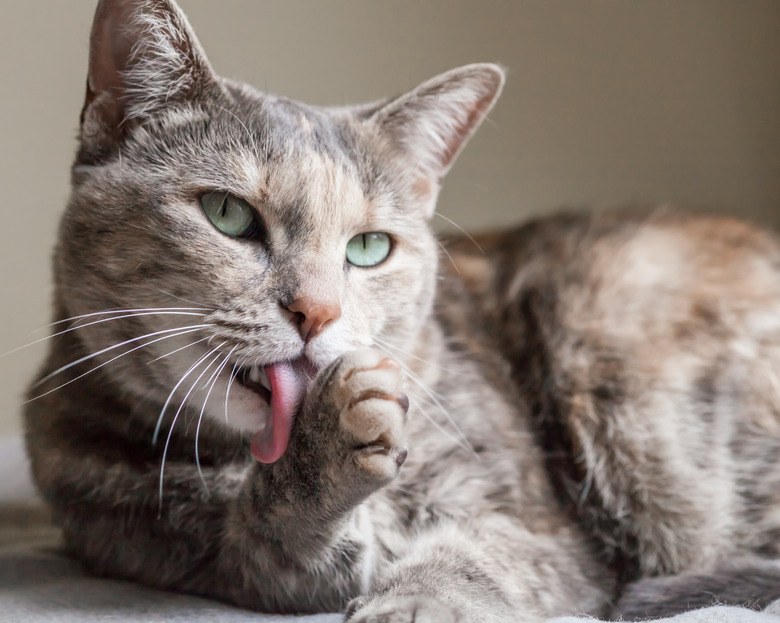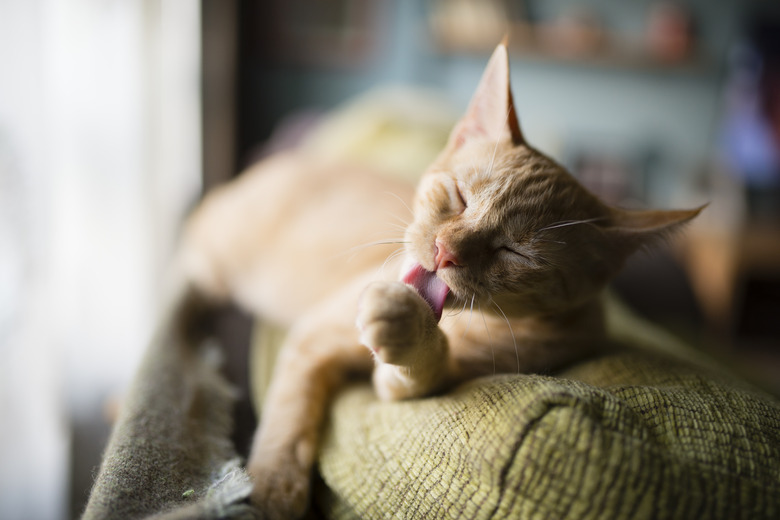Why Is My Cat Licking Her Hair Off?
If your cat is excessively grooming herself to the point of the cat licking her fur off, there's likely a medical or psychological reason for it. Fleas, a skin condition, or another underlying medical condition might be causing her skin to become irritated, prompting her to lick. An obsessive disorder also might be to blame. The only way to know for sure is to visit the vet.
Tip
Hair loss from excessive licking may have many causes including a skin condition, hormonal imbalance, or a psychological disorder.
Skin conditions that cause itching
Skin conditions that cause itching
Itchy, irritated skin, also known as dermatitis or miliary dermatitis, is a common cause of excessive grooming in cats. It's usually caused by parasites such as fleas, lice, or mites. Ringworm is a type of fungus that causes itchy red patches of skin in cats and is contagious to people. Bacterial or fungal skin infections may cause your kitty to lick at the affected area, as can pain in that area.
If your kitty suffers from allergies, her skin may become itchy as a reaction to something in her environment or an ingredient in her food. Dry, itchy skin may also be due to cold weather or a lack of fatty acids in your cat's diet.
Psychological causes of excessive grooming
Psychological causes of excessive grooming
Sometimes, cats will overgroom their fur due to anxiety, boredom, or an obsessive disorder. Excessive grooming and hair-pulling in cats are known as psychogenic alopecia. Indoor cats, female cats, and Oriental breeds like Siamese cats are more prone to developing psychogenic alopecia than others.
Cats who experience a change in their environment or who aren't getting enough exercise are more prone to developing problems with excessive grooming. The addition of a new pet, family member, or a move to a new home can all cause stress for your kitty, which may lead to behaviors such as compulsive grooming to the point of hair loss.
Additional causes of overgrooming
Additional causes of overgrooming
Underlying medical conditions like hormonal imbalances or autoimmune diseases can cause your cat's skin to itch, leading to your cat licking her hair off. For example, cats who have intestinal parasites and are sensitive to them could experience itchy skin.
A female cat who is pregnant may lick vigorously at her genital area 12 to 24 hours before she goes into labor. A male cat who licks excessively at his genital area may suffer from a urinary infection or urethral obstruction, requiring immediate veterinary care. Arthritis causes pain in your cat's joints. If her joints hurt, she may lick at them to help relieve the pain, leading to hair loss.
Veterinary care for excessive grooming
Veterinary care for excessive grooming
If you notice that your cat seems to groom herself all the time or see any patches of hair loss, skin irritation, or scabs on your cat's body, get her to the vet for an exam. Your vet can determine whether or not a skin condition, parasitic infestation or other underlying medical condition is to blame for her hair loss. Treating the cause should stop excessive grooming and hair loss in most cases.
Once your vet rules out a medical condition for your cat's excessive licking, he may prescribe an anti-anxiety medication for her to reduce her stress and stop her compulsive licking. You can enrich her environment with toys, window perches, and daily interactive play sessions with toys on a wand for 15 minutes per day.


